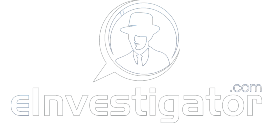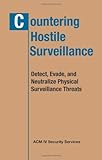In this article, I’ll briefly overview surveillance and list some popular surveillance books.
What is Surveillance?
Surveillance is the systematic monitoring, observation, and collection of information about individuals, groups, or activities. It involves using various technological tools, such as cameras, sensors, and data analysis systems, to gather data for observation, analysis, or control.
Both governmental and non-governmental entities can conduct surveillance for different reasons. Here are some key aspects and types of surveillance:
- Purpose: Surveillance can serve multiple purposes, including public safety, crime prevention, national security, intelligence gathering, monitoring public spaces, gathering evidence for law enforcement, protecting assets, and managing risks.
- Methods: Surveillance methods have evolved with advancements in technology. Traditional methods include physical observation, human intelligence, and undercover operations. Modern surveillance relies heavily on electronic means, such as closed-circuit television (CCTV) cameras, facial recognition systems, GPS tracking, social media monitoring, and data analysis tools.
- Locations: Surveillance can occur in various settings, including public spaces like streets, airports, and government buildings. It can also extend to private spaces such as homes, workplaces, and online platforms. The extent of surveillance and the balance between privacy and security are subjects of ongoing debate.
- Privacy Concerns: Surveillance raises concerns about privacy and civil liberties. Collecting and analyzing personal data may infringe upon individuals’ rights to privacy, freedom of speech, and freedom of association. Balancing security needs with privacy rights is a complex challenge for governments and organizations.
- Legal Framework: Many countries have laws and regulations governing surveillance practices to protect individual rights. These laws define the conditions under which surveillance can be conducted, the required legal authorization, data storage, and retention, and the rights of individuals to access and challenge the collected data.
- Surveillance Technologies: Surveillance technologies continue to advance rapidly. Some notable examples include facial recognition systems, biometric identification, drones, social media monitoring tools, data analytics, and artificial intelligence. These technologies enhance the efficiency and effectiveness of surveillance but also raise ethical and legal concerns.
It is important to balance the legitimate need for surveillance in certain contexts, such as law enforcement and national security, and protect individual rights to privacy and freedom. Public discourse and oversight mechanisms are crucial in ensuring surveillance practices are transparent, accountable, and respectful of civil liberties.
Use in Private Investigations
Surveillance is one of the most common reasons people hire a private investigator. Private investigators can monitor the movements of cheating spouses, family members, and employees. However, surveillance is not as easy as it seems. Conducting effective surveillance is both an art and a science and requires a variety of techniques and knowledge from which to draw upon.
List of the Best Surveillance Books
Private investigators need the right skills, know-how, and patience, combined with the right equipment and tools. Both novice and experienced private investigators can learn new ideas and techniques from surveillance books. Surveillance books explain how to perform various types of surveillance, including physical, video, camera, and audio.
The best way to gain experience in observing suspects is to do so on the job. However, surveillance books and manuals can help provide much knowledge on the subject. Check out the following:
Surveillance: A Concept of the Art
| Preview | Product | Price | |
|---|---|---|---|

|
Surveillance: A Concept of the Art |
$16.99 |
Buy on Amazon |
Even though he grew up in a Brooklyn neighborhood full of crime, gangs, and drugs, Eddie Cruz decided to pursue a career in law enforcement. He became a police officer at age 20 and a detective by age 26. As a detective, Cruz worked undercover in the narcotics division. He was immersed in a world where surveillance is coordinated between multiple departments, such as the NYPD, the FBI, and the DEA.
After he retired from the police department, Cruz entered the private sector and began work as a private investigator. Using the experience he gained doing undercover work and conducting surveillance as a private investigator, Cruz noticed the differences between surveillance in the private sector and law enforcement. Cruz shares his deep knowledge of surveillance in a new book, Surveillance: A Concept of the Art. The guide provides insight into what makes surveillance work, how to plan and strategize, what equipment to use, and more.
A Professional’s Guide To Tailing Subjects By Vehicle, Foot, Airplane, And Public Transportation
This helpful surveillance book explains how private detectives can tail subjects in various transportation modes. For example, methods include on foot, by vehicle, via air travel, and even various modes of public transportation such as the subway or in taxi cabs.
This guide places greater emphasis on personal skills, intuition, and quick decision-making rather than the use of high-tech gadgets. Learn more at Amazon.com.
Ultimate Surveillance DVD – The Basics
This interactive DVD teaches you many of the techniques necessary to develop the skills of covert monitoring. The DVD provides real-life examples with live-action footage to help you learn fast. It is an excellent training and reference guide for private investigators and security experts. Learn more at Amazon.com.
Countermeasures: A Serious Guide To Detecting, Evading, And Eluding Threats To Personal Privacy
This revealing surveillance book explains how to detect and evade surveillance efforts by other people. This guide teaches you how to practice tactics of observation and awareness, detection and evasion against even the most sophisticated techniques. In addition, it explains how to conduct effective covert observation. Private detectives need to know when they are being watched. This book will help you understand what to look for.
Countering Hostile Surveillance: Detect, Evade, and Neutralize Physical Surveillance Threats
Read the coursebook on identifying and evading hostile monitoring in the real world. This book is a must-have for private investigators who conduct covert missions for their clients. This book explains how you can detect and evade those following or watching your movements, whether in a car or on foot.
You’ll learn, in great detail, the countermeasures that are proven effective against even the most advanced techniques. Great for private investigators and security professionals.
Techniques in Counter-Surveillance
The Fine Art of Bug Extermination in the Real World of Intelligence Gathering
Learn how corporate spies secretly gather information on you using high-tech gadgets such as telephone wiretaps, “bugs,” hidden microphones, and video recorders. Then, put that knowledge to work to protect yourself and your clients using a variety of counter-surveillance measures.
Is My Cell Phone Bugged?
Everything You Need to Know to Keep Your Mobile Conversations Private
Learn from electronic eavesdropping detection specialist Kevin D. Murray, who leverages over 30 years of experience and detailed research to explain how to control your privacy. The book explains the technology involved in a simple and easy-to-understand manner. The book is like hiring your security consultant.
Surveillance Detection, The Art of Prevention
Surveillance detection is a technique that is now being revitalized and implemented worldwide in the war against terror. This book explores how people can use SD to prevent threats. The book will help you learn to protect yourself and use surveillance detection to protect your property and personnel.
If you have any questions about these surveillance books, please comment below. Also, check out other Private Investigator Books.
Private Investigator Services
To locate a private investigator in your area specializing in surveillance services, please visit our Private Investigation Directory. If you want to learn about other types of surveillance equipment, see Spy & Surveillance Equipment.
The Private Investigator’s Licensing Handbook
The Private Investigator’s Licensing Handbook: How to Get a Private Investigator License in any State to learn about the services provided by private investigators, the typical work environment, career outlook, and salary range. Plus, learn the basic licensing requirements for each state and where to find more information. Includes sections on training and education, PI associations, and more. Buy the Book at Amazon today.
More Information
- Nanny Cams
- Conducting night-time surveillance with Night Vision Goggles, Scopes and Weapon Sights
- Conducting surveillance on mobile phones and cell phones with Mobile Phone Spy Software
Questions and Comments
If you have questions about these surveillance books, please post a message below.








